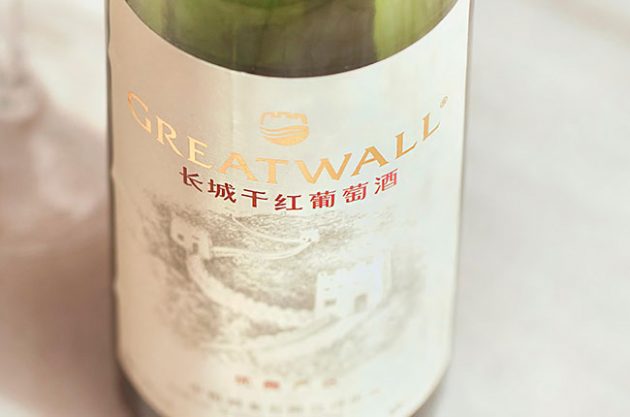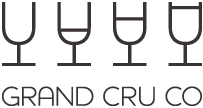Eighteen new Masters of Wine sworn in
The Institute of Masters of Wine has welcomed 18 new members into the exclusive club at its annual awards ceremony.
The 18 new MWs, who passed all parts of the MW examination in March and September 2017, are:
Mark Andrew MW (UK)
Nova Cadamatre MW (USA)
Julie Chéné Nyheim MW (Norway)
Alistair Cooper MW (UK)
Jeremy Cukierman MW (France)
Emma Dawson MW (UK)
David Forer MW (Spain)
Philip Harden MW (UK)
Ashley Hausman Vaughters MW (USA)
Sarah Heller MW (Hong Kong)
Tim Jackson MW (UK)
Andreas Kubach MW (Spain)
Fernando Mora MW (Spain)
Aina Mee Myhre MW (Norway)
Billo Naravane MW (USA)
Catherine Petrie MW (UK)
Nigel Sneyd MW (USA)
Morgan Twain-Peterson MW (USA)
Several awards were handed out during the evening.
Nova Cadamatre MW received the Taransaud Tonnellerie Award, for her knowledge in the production and handling of wine, according to IMW.
Jeremy Cukierman MW received the Bollinger Medal for his tasting ability.
Fernando Mora MW won the Noval Award for his research paper, titled ‘Proposals for creating a revised wine quality classification in Denomination of Origin (DO) Campo de Borja, with recommendations for potential implementation in other DOs in Spain’.
Sarah Heller MW scooped four awards at the ceremony. This included the Villa Maria Prize for her knowledge and understanding of viticulture and the Errazuriz Award for her performance in the business of wine exam.
Heller also won the Robert Mondavi Winery Award for her performance in the theory papers of the MW exams, plus the Austrian Wine Marketing Board (AWMB) Outstanding Achievement Award – for her high marks in all MW exams.
It is notoriously difficult to pass the three MW exams set by the Institute of Masters of Wine.
The tests include a practical tasting exam, a theory test and a final, essay module.
President Xi serves up Chinese wine for Trump dinner
China's Xi Jinping served a selection of Chinese wines to Donald Trump during their meeting in Beijing, as the pair struck a conciliatory tone with each other.

Wines served during a dinner between Chinese president Xi and US president Trump, plus other dignatories – including business leaders – were largely from Great Wall’s Chateau Sungod based in Hebei province near to Beijing, according to a statement from the producer.
Although Trump has declared that he is tee-total, other US and Chinese delegates at the dinner were given Great Wall ‘the Chief Winemaker’s Selection’ 2009 – a Cabernet Sauvignon from Chateau Sungod in Hebei, plus Chateau Sungod Riesling 2011.
Other wines poured for the occasion included a Chateau Sungod Syrah, a Riesling from Chateau Yunmo in Ningxia – one of the most hotly tipped Chinese wine regions – and a traditional method sparkling wine from Chateau Sungod. Food served at the dinner is understood to have included a blend of dishes, from ‘kung pow chicken’ to steak and with an option of pastries for dessert.
Chinese wines are now a mainstay of international diplomacy, thanks in no small part, of course, to both China’s prominence in geo-political discussions and also the now-established cusom of host nations serving home-made wines.
Sylvia Wu described the focus on Great Wall wines as a relatively safe political choice. Great Wall wines and those made by the producer Changyu have both featured heavily at official Chinese functions in recent years. Great Wall has tended to be the preferred choice for diplomatic receptions in and around Beijing.
The wine regions in Hebei province include Shacheng, located in the northwest of Beijing, which is better known for dry white wines; and Changli, which is in the northeast of Beijing and is more associated with red wines.
Reprieve for creator of long-lost Bordeaux wine
We have been wrestling with this story since the summer. On the face of it, it’s a simple good news piece for a local winemaker. You might remember Loic Pasquet – the man behind Liber Pater, one of the most curious and most expensive wines in Bordeaux.
You might also remember that in 2016 Pasquet was found guilty of defrauding the authorities of almost €600,000 in aids and grants from both the European Union and France Agrimer.
And that in a confusingly-timed separate case brought by French appellations body the INAO, he was also found guilty of contravening winemaking rules set out in the Cahier de Charges of his local AOC Graves.
The news was liberally covered in pretty much every French newspaper, so it seemed strange that the same press was extremely quiet about the fact that, on 14 June 14 this year, a French appeal judge overturned a key part of the verdict in the INAO case. The financial fraud verdict still stands, but Pasquet has lodged an appeal.
When approached by the media, he was only too happy to send the most recent INAO ruling set out by the judge. It said that the INAO inquiry ‘raised questions about the way that Loic Pasquet carries out his viticultural work that are not in line with usual practices’, but that he had not specifically contravened the local Cahier de Charges – rules – of the Graves appellation.
The court documents emailed by Pasquet seemed to be missing a few pages, so his barrister Jean Gonthier was contacted to try to better understand what was going on – and also what was happening with the separate financial fraud case.
He explained some of the accusations listed in the original complaint – specifically that Pasquet was planning to plant ungrafted vines at 30,000 plants per hectare, instead of the more usual 5,000 to 10,000 in Graves. The judge noted that Pasquet had abandoned this idea and that the high density vines that he does have (at 20,000 plants per hectare) fall within the allowable regulations for space between plants and rows. The accusations regarding chaptalisation were ruled to be groundless.
‘For a winemaker to be accused of fraud over what he puts in the bottle is a gross defamation,’ Gonthier ,who was not Pasquet’s lawyer for the original hearing, said. ‘My client found this the far more serious of the charges brought against him, and is extremely satisfied with this result.’
This rather neatly suggests that financial fraud is a less serious charge, but it does seem that Pasquet’s winemaking has been deemed simply eccentric rather than illegal. It backs up the argument, set out by Pasquet and his lawyer, that the disputes are in fact over his attempts to recreate the taste of pre-Phylloxera Bordeaux wine.
There’s no doubt that he has caused a stir since arriving in Landiras just over a decade ago.
Rather than making just another Graves red, Pasquet instead read through ancient texts on 19th century winemaking, and set about planting 14 forgotten grape varieties that were typical at the time of the 1855 Paris Classification such as Castet, Mancin, Lauzet, Camaralet and Prunelard (alongside Sémillon, Petit Verdot and Cabernet Sauvignon).
These have been planted without rootstocks at high density, as was common in the 19th century. They are to be bottled as Vin de France, separately to his existing Graves wines that sell for prices upwards of €4,000.
The first results of the ancient varieties are now ready for tasting but have not made it onto the market – something that further complicates things when trying to work out exactly what is going on at the estate.
Clearly never one to let sleeping dogs lie, Pasquet said that he has launched his own defamation case against the INAO. While he says this year’s verdict is ‘a victory for the cultural heritage of wine and for the diversity of taste’, he still mutters darkly about powerful figures with vested interests being unwilling to see him challenge the modern taste of Bordeaux wine.
As for the financial mismanagement case, his appeal against the guilty verdict is ongoing – as is the feeling that this most interesting and challenging of winemakers is not done yet.




